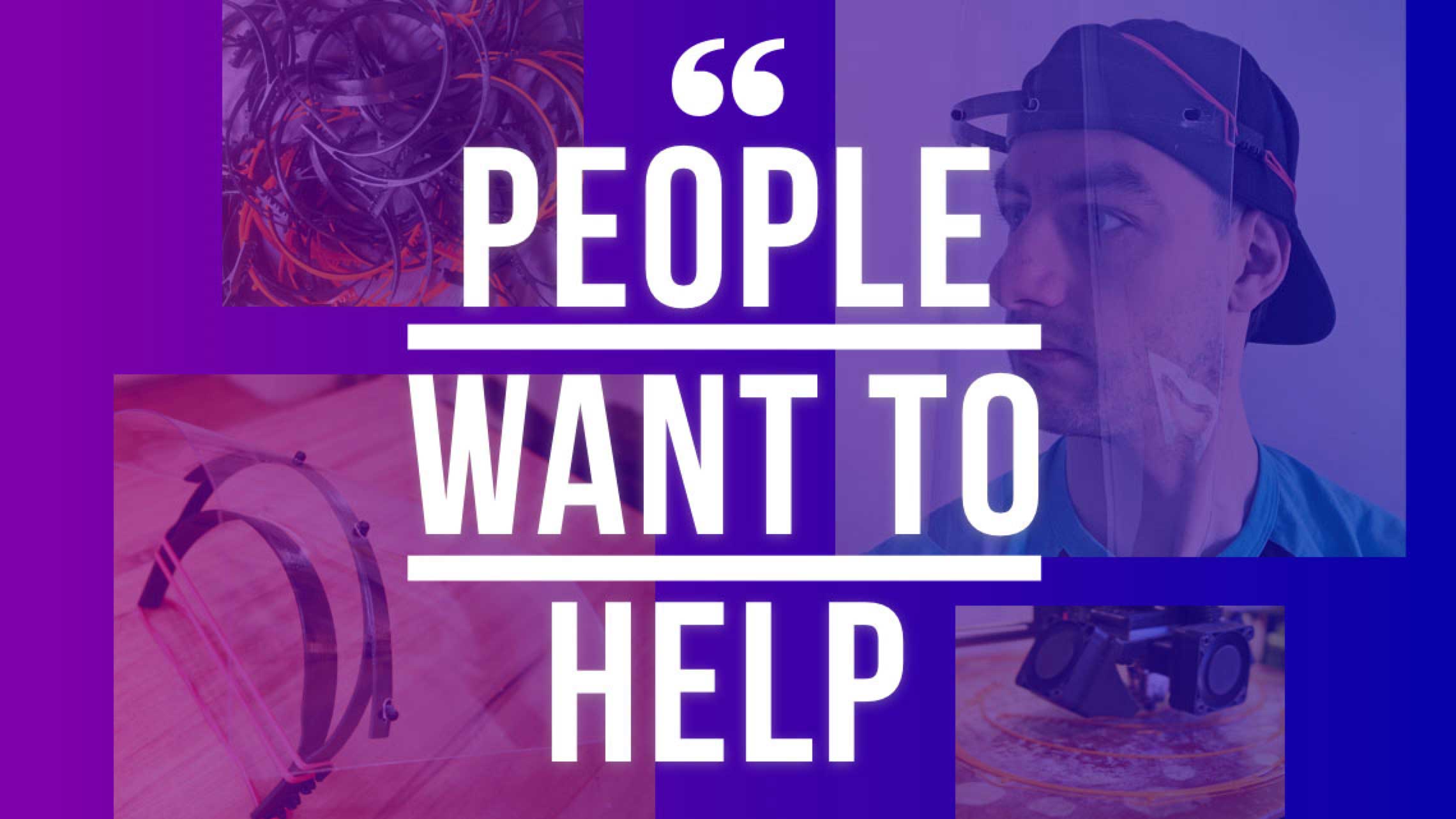Digitas Health employees are 3D-printing PPE for frontline workers.

COVID-19 is bringing out the best in people, at the same time as it exposes social inequity and the failings of our healthcare infrastructure.
Case in point? This initiative from team members at Digitas Health. Working in healthcare, they had a better understanding than most of what frontline workers were really up against… and they had the know-how to do something about it.
Marcel caught up with Jonathan Cooper, Digitas Health’s VP of Content Intelligence, who’s helping lead the project. Here’s the whole story.
How did this get started?
It all began with a story out of Syracuse NY, where a husband and wife who had a 3D printing company used the 14 printers in their garage and put them to work making equipment for healthcare workers. It got me thinking - why can’t I do that?
Honestly, the project really kicked off when I sent a Saturday or Sunday email to [Digitas Health president] Eric Muller. I wrote him a note and said, “I know nothing about 3D printing, but somebody on our team probably does – and if not, can I get the 3D printer and put it in my garage?” That Monday [senior production designer] Keith Hatton got the clearance, drove to the office, picked it up, and by that evening we connected and started downloading spec files and printing prototypes.
A couple heroes to highlight - Keith, who is printing the headstraps, and Jackie McCullough, who is cutting the shield plastic.
One of the best parts of this occupation for me – as I work on this project, I’ve been talking to folks about digital strategy, the data team, work through ideas – raise your hand, and folks are willing to share the workload.
What’s the process like?
The printing part isn’t that hard. Once you have the file, you basically just set the machine up and wait. It took a couple hours to get the first few done, just by the size and speed of the machine. Luckily Keith is a product engineer, so he can actually work in the files necessary.
3D printing isn’t like an injection mold, where it comes out clean – rough edges need to be sanded down, there’s assembly required. Keith connected with some Philly folks via Slack who provided the visor material, and he spent some nights putting them together.
What do you do with the PPE once it’s finished?
We’ve made donations to St. Christopher’s Children’s Hospital in Philadelphia, as well as the Philly Department of Public Health and others.
We’ve also been using some of our off-work time to connect with elected officials, to find ways to bring scale to the 3D printing efforts that are being done all over. I’ve reached out to my state representative, the Mayor’s office, and others, but the folks I’ve been most successful with are the Philadelphia Department of Health.
This is a national effort. Libraries across the US have turned vacant buildings into print hubs. We’ve been talking to Coca-Cola about donations of plastic for the face shields. We’re seeing partnerships that would normally take weeks or months or years to negotiate, now happening in a matter of days. People want to help.
I had a couple ideas I didn’t know what to do with, and I just asked around. People pointed me to the right folks. But that’s part of what I hope Marcel can do for everyone - so it doesn’t have to just be about who you know. You’ll have a resource to connect with folks that have skill sets to help bring your ideas to life.
What’s it like doing all this, on top of your existing jobs?
It’s emotional, if I’m being fully transparent. I look at the smart people I work with – if we all bring a little bit of that talent to the table, we can achieve so much. I’d get off phone calls and just cry, because we felt like we’d made a difference or achieved something. So many team members have engaged and asked, how else can we help? When we had trouble sourcing plastic, people made it happen.
At the same time, we’re super lucky. I’m not a doctor, much to my stepmother’s chagrin, but I can’t imagine how folks are coping with the difficulty of being on the frontlines of this crisis while not being able to hug their kids at night after an unbelievably difficult day.
How can other Publicis Groupe employees help?
We all have skills that are valuable in this time. Help disseminate accurate and truthful information. Think through how people’s lives are being impacted – especially vulnerable folks, people with respiratory conditions, the immunosuppressed – think beyond our daily tasks and how we can make a difference. It doesn’t have to be through your job. Explore community groups, what’s happening in your neighborhood. Just be the best version of yourself… and it’s ok if you’re not that every single day.
Marcel Editorial
Get In Touch
Press? Let's Chat
press@marcel.aiQuestions about Marcel
hello@marcel.ai